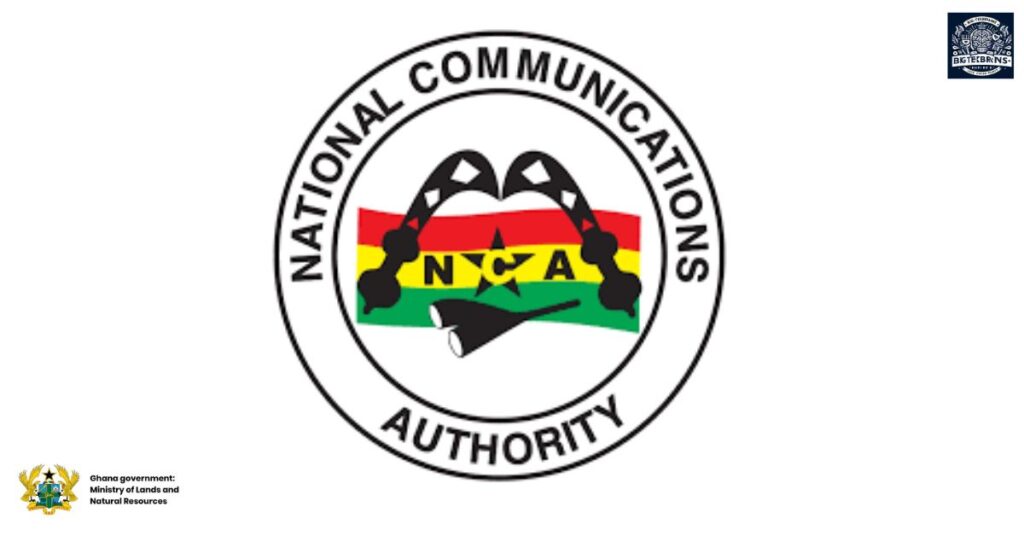Historical Background
The National Communications Authority (NCA) of Ghana was established in 1996 under the National Communications Authority Act, 1996 (Act 524). It was formed to regulate the growing telecommunications industry, ensuring the efficient and fair use of radio spectrum and fostering a competitive communication sector. The NCA’s role has expanded over the years to include oversight of broadcasting, cybersecurity, and data protection within Ghana’s digital space.
Constitutional Role and Mandate
The NCA operates under the legal framework provided by the Electronic Communications Act, 2008 (Act 775) and National Communications Authority Act, 2008 (Act 769). These acts empower the Authority to:
- License and regulate telecommunications and broadcasting operators.
- Manage and allocate frequency spectrum.
- Ensure fair competition and consumer protection.
- Facilitate the deployment of ICT infrastructure for national development.
- Monitor the quality of service provided by network operators.
Organizational Structure
The NCA’s organizational framework is designed to ensure efficient administration and regulatory enforcement. The structure comprises:
Board of Directors:
- The highest decision-making body that sets strategic policies.
Director-General:
- Leads the day-to-day operations of the Authority.
Divisions and Units:
- Regulatory Administration
- Engineering and Spectrum Management
- Consumer and Corporate Affairs
- Legal and Enforcement
- Cybersecurity and Digital Compliance
- Research, Innovation, and Strategy
Leadership and Ranks
The leadership of the NCA is composed of key officials appointed by the President of Ghana, in consultation with the Council of State. These include:
- Board Chairman
- Director-General
- Deputy Directors (handling various operational areas)
- Regional Directors overseeing compliance at the regional level
- Senior Officers and Staff handling technical and administrative functions
Mode of Appointment or Recruitment
Appointments to leadership positions, including the Director-General and Board Members, are made by the President, subject to parliamentary approval. Recruitment of professional staff is conducted through a transparent process that involves:
- Public advertisement of vacancies
- Screening of applications based on qualifications and experience
- Competitive selection through interviews and assessments
- Appointment based on merit and suitability for the role
Offices and Units That Work With or Under the NCA
The NCA collaborates with various government agencies and private sector stakeholders, including:
- Ministry of Communications and Digitalisation (policy oversight)
- National Information Technology Agency (NITA)
- Ghana Broadcasting Corporation (GBC)
- Data Protection Commission
- Telecommunications and broadcasting companies
- Internet Service Providers (ISPs) and digital platforms
Constitutional Reforms and Amendments
The legal framework guiding the NCA has undergone reforms to enhance regulatory efficiency. The most notable amendments include:
- The passage of the Electronic Communications Amendment Act, 2016 (Act 910), which introduced new measures for managing spectrum resources.
- The enactment of the Cybersecurity Act, 2020 (Act 1038), which strengthened the NCA’s role in cyber governance.
- The implementation of SIM Card Re-registration directives to enhance digital identity verification.
Key Achievements of the NCA
Over the years, the NCA has made significant contributions to Ghana’s telecommunications sector. Some notable achievements include:
Expansion of Mobile Penetration:
- Ghana’s mobile penetration rate has exceeded 100%, indicating widespread access to mobile services.
Implementation of Mobile Number Portability (MNP):
- Enhancing consumer choice and competition in the telecom industry.
Digital Migration for Broadcasting:
- Facilitating the transition from analog to digital terrestrial broadcasting.
Regulation of Over-the-Top (OTT) Services:
- Establishing guidelines for platforms like WhatsApp, Zoom, and Facebook Messenger.
Spectrum Management:
- Successful auctioning of 4G and 5G spectrum licenses to enhance broadband services.
Cybersecurity Regulations:
- Strengthening Ghana’s cybersecurity infrastructure in collaboration with the Cyber Security Authority.
References
- National Communications Authority Act, 1996 (Act 524).
- Electronic Communications Act, 2008 (Act 775).
- Cybersecurity Act, 2020 (Act 1038).
- Ministry of Communications and Digitalisation, Ghana.
- National Communications Authority (NCA) official website: www.nca.org.gh

